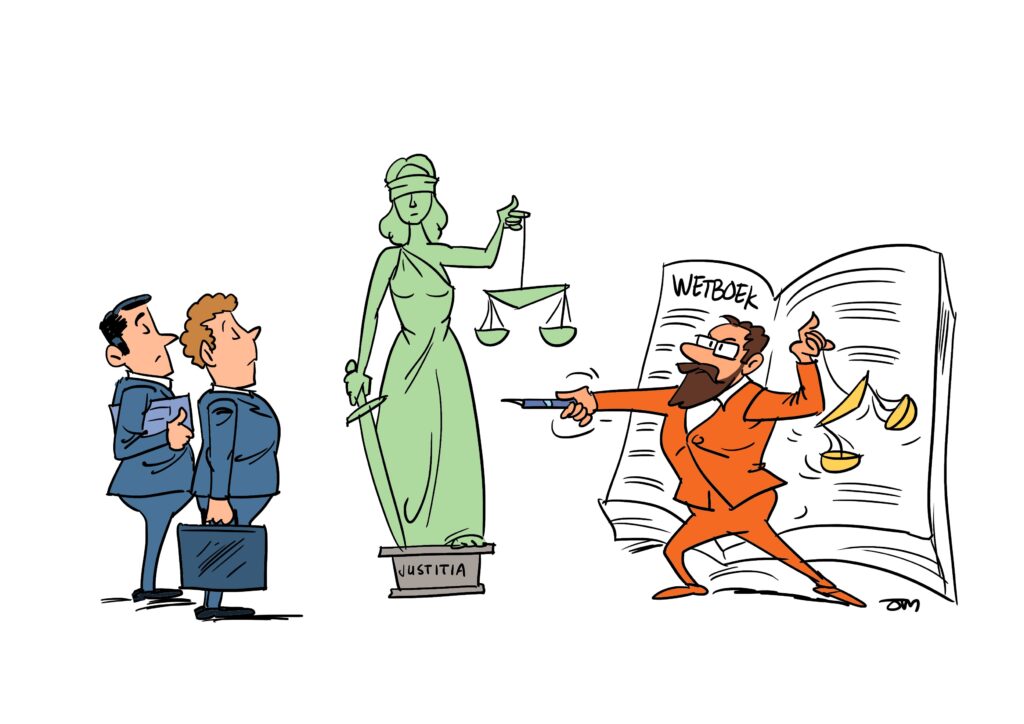Company car, private use and accountant could be the start of a good joke. Far from a joke, it was the accountant that did not know the accounting rules.
Company car, private use and accountant
Every entrepreneur would like to drive a nice car fully paid by the company. If that is a car only suitable for work purposes, that is the case. However, most cars can also be used privately. The Dutch tax office does not want to be the sponsor of private use.
Private use of a company car
The moment you drive a company car, a percentage of the value of the company car is added to your income. We have 7 flavors, below you find the percentages taken from the Dutch catalogue value:
A company car owned by the company since before January 1, 2012 adds 25% to the income.
A company car owned by the company since after January 1, 2012 adds 22% to the income.
A 2019 year build electric car adds 4% to the income up to EUR 50.000, then again 22%. Valid till 2024.
A 2020 year build electric car adds 8% to the income up to EUR 45.000, then 22% again. Valid till 2025.
A 2021 year build electric car adds 12% to the income up to EUR 40.000, then 22% again. Valid till 2026.
A 2022 year build electric car adds 16% to the income up to EUR 35.000, then 22% again. Valid till 2027.
A 2023 year build electric car adds 16% to the income up to EUR 30.000, then again 22%. Valid till 2028.
A young time of 15 years old (mind the exact dates) adds 35% to the income over the day value.
Accountant and company car private use
You see there are many variations to the private use of the company car, but the accountant in our example chose not to report anything. That is possible.
If you state you will not drive more than 500 km during a calendar year for private use, you do not need to add any value for private use to the income. This needs to be applied for.
The condition is that you provide a detailed overview of the KM driven with the company car. That contains among many items the start KM number, the distance, the reason of the distance, business or private and final KM number.
Audit by the tax office
The tax office audited the accountant and inquired about the company car and private use. The accountant could not show his diary. Which is important for the audit to see if the appointments meet the overview. The planning of his work was done in excel. Deleted after 2 weeks while in the mean while adding the driven KM to the excel (which was not deleted).
The start and finish total KM of the car were noted on a post-it, and thrown away after put in the excel. Basically the tax office had nothing to check the KM overview with. That is, almost nothing. The habit of a mechanic is to note the KM stand on the invoice after maintenance. The tax office could not match these with the overview created.
The proof of having driven less than 500 km for private use per year was rejected by the Dutch tax office.
What is the consequence of such a rejection?
An audit is done over a 5 year period. If you drive a regular car of about EUR 60.000 Dutch catalogue value, then 22% over that amount is EUR 13.200. The result of the company goes up with EUR 13.200. When this is corrected for a 5 years period, which is always the case, if the car was owned for that period. The adjustment is then 5 times EUR 13.200 is EUR 66.000. Often a 25% penalty is issued for the offence, being EUR 16.500. This time the penalty was EUR 11.597.
The profit of the company was already fully consuming the first 38% tax bracket, hence this EUR 66.000 is in the 49,5% tax bracket. EUR 32.670 tax was to be paid plus EUR 11.597 penalty. A substantial amount.

The accountant went to court
As accountant you cannot state you do not know the rules. He did provide a second overview of the KM driven with the company car, but that was dismissed as not being reliant. No commute for home to the office was included, the business travel was not substantiated. Maybe the accountant did not know the rules.
The court dismissed the appeal, no proof was provided that the company car was not driven for less than 500km per year.
Tax is exciting
We think tax is exciting and we love accounting. Most of our clients neither think tax is exciting nor love accounting. Then suddenly when a company car is purchased we are promised by the client that they keep track of every KM the company car has driven, so no private use is added to the income.
We love accounting, but keeping track of the KM driven is a nightmare. The experience learns that no client can keep up with either the track of KM driven or driving less than 500 km per year for private use. That is truly not a lot, 500km. Simply accept the amount added to the income, as one thing is certain in life next to death and paying tax: if you do not add a percentage for private use of the company car to the income, you will get an audit.





